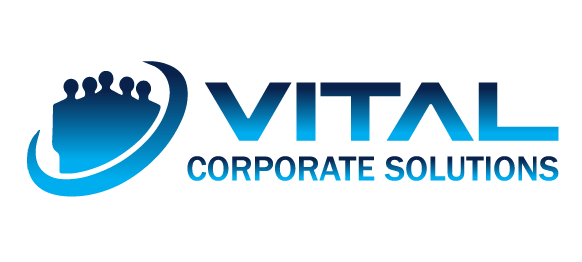What Is an Administrative Services Organization (ASO)?
Businesses may contract with an Administrative Services to handle specific administrative and human resource (HR) functions.
The employment connection and responsibilities are the key distinctions that set an apart from other employment services such as PEOs or Employee Leasing Organizations (ELOs). The client company continues to be the “employer of record” for tax and legal purposes when dealing with an Administrative Services This implies that the company maintains complete control over its workforce and all related legal obligations even when the ASO manages administrative duties.
ASOs assume administrative responsibilities without committing to a co-employment model, so the business maintains ownership of employee programs, its tax identification number, and its liability for compliance problems. In contrast, PEOs operate under a co-employment framework, while this autonomy does not exist.
Essential Services Served by an ASO
Payroll Support:
Administrative Services handle payroll processing, ensuring that employees are paid accurately and on time. They also manage tax deductions and filings, easing the burden on the company’s internal team.
Management of Incentives:
While the business is ultimately in charge of obtaining its benefit plans, an administrative organization can help with program administration and broker relations.They relieve the business of the responsibility of overseeing day-to-day operations by helping to ensure that employees receive the benefits to which they are legally entitled.
HR Administration:
ASO provide a comprehensive range of HR administrative support, from maintaining employee records to handling issues related to compliance and performance management.
Maintaining Regulatory
Compliance can be challenging for businesses, particularly in areas like employment law where laws and regulations are always changing. By decreasing the likelihood of penalties or legal problems, ASO aids in ensuring compliance.
Motivation for the Need for Administrative Services Organizations
An ASO’s ability to expand an organization’s HR department’s capabilities is what makes it so important. Businesses can reap numerous advantages by outsourcing these essential operations, such as increased productivity, decreased administrative workloads, and enhanced personnel management. Assisting companies in very complicated administrative and compliance domains such as healthcare might greatly benefit from collaborating with Administrative Services.
For small-to medium-sized clinics and healthcare facilities, balancing patient care with administrative duties is a common difficulty. By assigning administrative tasks like payroll, benefits administration, and regulatory compliance to a third party, healthcare practitioners can focus on delivering optimal patient care.
Comparing ASO with PEO: Recognizing the Differences
Professional Employer Organizations (PEOs) and ASOs both provide HR outsourcing services; the primary distinction between the two models is the degree of control and risk that each entails. decisive element for companies picking between an ASO and a PEO. Working under a co-employment paradigm, a PEO takes on the role of employer of record for certain aspects of employment, such as benefits and payroll.
The PEO and the company have certain legal obligations and liabilities because of this co-employment arrangement. The PEO manages benefits for employees, offers group health insurance, files taxes using its own federal identification number, and more.
On the other hand, when an ASO is used, the company is still in complete control of its personnel, including compliance and tax filing. Administrative Services provide administrative assistance; nevertheless, it bears no responsibility for the legal obligations or liabilities associated with employment.

When Should a Business Choose an ASO?
Benefits Administration:
Administrators assist in the management of benefit programs, but they neither supply nor finance the benefits. This means that the company must take on the responsibility of securing and funding benefits packages. However, ASOs can assist in interfacing with brokers and ensuring that the benefits are managed effectively.
HR Help:
Both ASOs and PEOs provide HR help, but Administrative Services offer a more hands-on administrative approach. They assist with day-to-day HR management duties like compliance and payroll, but higher-level strategic choices still need to be made by the company.
Pricing Considerations:
ASOs are often more economical than PEOs, especially for small firms, because the majority of ASO services charge a flat amount per person, which can be a more predictable and acceptable pricing structure than the percentage-based costs that some PEOs charge.
Risk management:
PEOs are a tempting option for businesses concerned about liability and compliance since they assume some of the financial and legal risks associated with hiring. This is one of their primary benefits. Administrative Services does not, however, allow
Conclusion: Is this ASO Right for your Business?

For Australian firms wishing to streamline their HR services without sacrificing control, an Administrative Services Organization (ASO) offers a personalized solution. Businesses can keep full legal responsibility for their employees while minimizing the administrative load by outsourcing services like compliance management, payroll, and benefits administration.
Small and medium-sized enterprises are especially drawn to administrative services because they seek to minimize expenses and stay away from the complications of a co-employment model. Even these administrative organizations might not provide the full range of services provided by PEOs, their affordability and adaptability make them a desirable substitute for businesses looking to expand without sacrificing control over their HR functions.
Cash Flow Management Services Australia
At Vital Corporation Solutions, we know that cash is the lifeblood of your business. No matter how profitable you are on paper, without the right cash flow strategy, your operations can stall. Our cash flow management services are designed to give you control, clarity, and peace of mind—whether you’re a local startup or a growing enterprise anywhere in Australia.
We help businesses across the country stay on top of their finances, plan for the future, and avoid cash shortfalls with smart, strategic cash flow solutions.
What is cash flow management?
Cash flow management is the process of tracking, analyzing, and optimizing the movement of cash in and out of your business. It helps ensure that your company always has enough liquidity to cover expenses, invest in growth, and handle unexpected costs.
It’s not just about managing money—it’s about managing your business’s future with precision and confidence.


Why Do You Need Cash Flow Management?
- Prevent Cash Shortages
Ensure you always have enough money to pay staff, suppliers, and essential bills—especially during quiet months. - Support Growth & Expansion
Strong cash flow gives you the confidence to invest in new opportunities and grow sustainably. - Improve Financial Decision-Making
Real-time insight into your cash position lets you make smarter, faster business decisions. - Reduce Stress & Uncertainty
With a clear picture of your cash flow, you can plan ahead and avoid surprises. - Strengthen Business Relationships
Stay on top of payments and maintain good standing with suppliers, lenders, and partners.
Benefits of Cash Flow Management with Us
- Clear Cash Flow Visibility – Know exactly when money is coming in and going out.
- Proactive Planning – Avoid last-minute surprises and manage peaks and troughs with ease.
- Business Stability – Keep your operations running smoothly, no matter the season.
- Expert Advice – Work with accounting professionals who understand Australian businesses.
- Available Australia-Wide – We support clients in all major cities and regions across the country.
Our Cash Flow Management Process
Initial Consultation & Business Review
We start by understanding your operations, income cycles, and financial goals.
Cash Flow Analysis
We dive into your current inflows and outflows, identifying gaps, trends, and opportunities.
Custom Strategy Development
We build a personalised cash flow strategy with short-term and long-term improvements.
Forecasting & Planning
We prepare rolling cash flow forecasts to help you stay ahead and make informed decisions.
Ongoing Monitoring & Support
We provide regular reviews, updates, and alerts to help you adjust as your business evolves.
Why Choose Vital Corporation Solutions?
- Specialists in Accounting and Cash Flow for Australian Businesses
- Custom-Tailored Solutions for Every Stage of Business
- Data-Driven, Practical, and Actionable Insights
- Easy-to-Understand Reporting and Transparent Communication
- Dedicated Support Team, Available Nationwide
- Trusted by Businesses in Sydney, Melbourne, Brisbane, Perth, Adelaide & Beyond
What Is an Administrative Services Organization (ASO)?
Businesses may contract with an Administrative Services to handle specific administrative and human resource (HR) functions.
The employment connection and responsibilities are the key distinctions that set an apart from other employment services such as PEOs or Employee Leasing Organizations (ELOs). The client company continues to be the “employer of record” for tax and legal purposes when dealing with an Administrative Services This implies that the company maintains complete control over its workforce and all related legal obligations even when the ASO manages administrative duties.
ASOs assume administrative responsibilities without committing to a co-employment model, so the business maintains ownership of employee programs, its tax identification number, and its liability for compliance problems. In contrast, PEOs operate under a co-employment framework, while this autonomy does not exist.
Essential Services Served by an ASO
Payroll Support:
Administrative Services handle payroll processing, ensuring that employees are paid accurately and on time. They also manage tax deductions and filings, easing the burden on the company’s internal team.
Management of Incentives:
While the business is ultimately in charge of obtaining its benefit plans, an administrative organization can help with program administration and broker relations.They relieve the business of the responsibility of overseeing day-to-day operations by helping to ensure that employees receive the benefits to which they are legally entitled.
HR Administration:
ASO provide a comprehensive range of HR administrative support, from maintaining employee records to handling issues related to compliance and performance management.
Maintaining Regulatory
Compliance can be challenging for businesses, particularly in areas like employment law where laws and regulations are always changing. By decreasing the likelihood of penalties or legal problems, ASO aids in ensuring compliance.
Motivation for the Need for Administrative Services Organizations
An ASO’s ability to expand an organization’s HR department’s capabilities is what makes it so important. Businesses can reap numerous advantages by outsourcing these essential operations, such as increased productivity, decreased administrative workloads, and enhanced personnel management. Assisting companies in very complicated administrative and compliance domains such as healthcare might greatly benefit from collaborating with Administrative Services.
For small-to medium-sized clinics and healthcare facilities, balancing patient care with administrative duties is a common difficulty. By assigning administrative tasks like payroll, benefits administration, and regulatory compliance to a third party, healthcare practitioners can focus on delivering optimal patient care.
Comparing ASO with PEO: Recognizing the Differences
Professional Employer Organizations (PEOs) and ASOs both provide HR outsourcing services; the primary distinction between the two models is the degree of control and risk that each entails. decisive element for companies picking between an ASO and a PEO. Working under a co-employment paradigm, a PEO takes on the role of employer of record for certain aspects of employment, such as benefits and payroll.
The PEO and the company have certain legal obligations and liabilities because of this co-employment arrangement. The PEO manages benefits for employees, offers group health insurance, files taxes using its own federal identification number, and more.
On the other hand, when an ASO is used, the company is still in complete control of its personnel, including compliance and tax filing. Administrative Services provide administrative assistance; nevertheless, it bears no responsibility for the legal obligations or liabilities associated with employment.

When Should a Business Choose an ASO?
Benefits Administration:
Administrators assist in the management of benefit programs, but they neither supply nor finance the benefits. This means that the company must take on the responsibility of securing and funding benefits packages. However, ASOs can assist in interfacing with brokers and ensuring that the benefits are managed effectively.
HR Help:
Both ASOs and PEOs provide HR help, but Administrative Services offer a more hands-on administrative approach. They assist with day-to-day HR management duties like compliance and payroll, but higher-level strategic choices still need to be made by the company.
Pricing Considerations:
ASOs are often more economical than PEOs, especially for small firms, because the majority of ASO services charge a flat amount per person, which can be a more predictable and acceptable pricing structure than the percentage-based costs that some PEOs charge.
Risk management:
PEOs are a tempting option for businesses concerned about liability and compliance since they assume some of the financial and legal risks associated with hiring. This is one of their primary benefits. Administrative Services does not, however, allow
Conclusion: Is this ASO Right for your Business?

For Australian firms wishing to streamline their HR services without sacrificing control, an Administrative Services Organization (ASO) offers a personalized solution. Businesses can keep full legal responsibility for their employees while minimizing the administrative load by outsourcing services like compliance management, payroll, and benefits administration.
Small and medium-sized enterprises are especially drawn to administrative services because they seek to minimize expenses and stay away from the complications of a co-employment model. Even these administrative organizations might not provide the full range of services provided by PEOs, their affordability and adaptability make them a desirable substitute for businesses looking to expand without sacrificing control over their HR functions.

